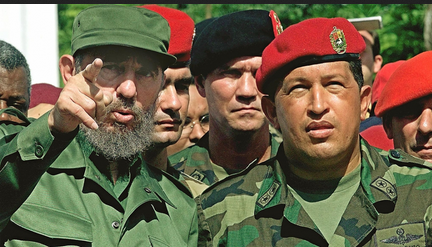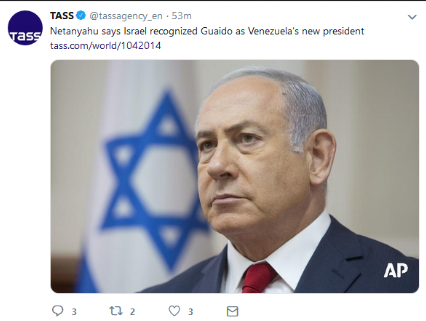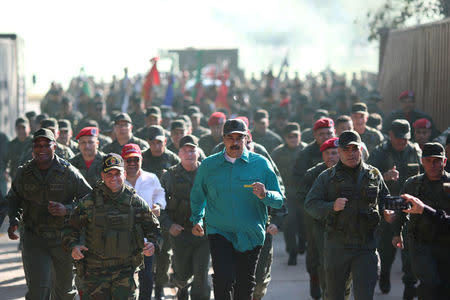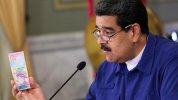Add:
https://news.un.org/en/story/2019/01/1031382 said:...
A divided Security Council
Ms. DiCarlo’s call for cooperation and dialogue was echoed by many of the Council’s 15 members during the contentious debate that followed her briefing, even as speakers for the United States and Russia sparred over the path to end the crisis.
The US State Department on Wednesday ordered the departure from Venezuela of some non-emergency employees, following a decision by the Trump administration, and several other nations, to recognize Mr. Guaidó as Venezuela’s rightful president.
President Maduro respoended by cutting diplomatic ties with the US.
Today, US Secretary of State Mike Pompeo called on the UN to recognize Mr. Guaidó as Venezuela's interim president, and declared: “Now it is time for every other nation to pick a side. No more delays, no more games. Either you stand with the forces of freedom, or you're in league with Maduro and his mayhem.”
But Russia’s UN Ambassador, Vassily Nebenzia, rejected that view saying the US was imposing its own “approaches and recipes” to resolve the problems on the ground in Venezuela. “This meeting is yet another attempt by the United States to affect regime change and [the Russian Federation] regrets that the UN Security Council has been drawn into such an unethical ploy.”
The two diplomats had faced off ahead of the meeting when the Council held a procedural vote on whether the session would even go forward, as ‘the situation in Venezuela’ is not an official item on the Council’s agenda.
But by a vote of nine in favour (Belgium, Dominican Republic, France, Germany, Kuwait, Peru, Poland, United Kingdom, United States) to four against (China, Equatorial Guinea, Russian Federation, South Africa), with two abstentions (Côte d’Ivoire, Indonesia), adopted the agenda item.
During the debate, French Ambassador Anne Gueguen said it was “entirely legitimate” that the Council considers the topic, as the crisis in Venezuela was spilling into neighbouring countries. France called for a political and negotiated solution to the crisis. “Mr. Maduro must understand that this is his last opportunity and he must take it,” she warned.
She said trhat if elections are not organized and held in eight days, France was ready, along with the European Union, to recognize Mr. Guaidó as the interim President. She urged authorities to refrain from the use of force against democratically elected officials, members of civil society and peaceful protestors.
https://sputniknews.com/latam/201901271071868074-venezuela-eu-ultimatum/ said:MOSCOW (Sputnik) - Venezuelan Foreign Minister Jorge Arreaza on Sunday rejected an ultimatum from several EU countries to call fresh elections within eight days, stressing that they were acting like "colonial powers."
"The Bolivarian Republic of Venezuela strongly rejects the statement by the European Union from January 26, which has confirmed its decision to join the coup d'etat, orchestrated by the US government, bearing in mind the attempt to give Venezuela the ultimatum reminiscent of the style of colonial powers," Arreaza said on Twitter.
Israel Recognises Guaido as Venezuela's President - Netanyahu --- he was getting late!
Earlier, the United Kingdom, Germany, France and Spain issued an ultimatum to Venezuelan President Nicolas Maduro, saying that he had eight days to organize elections or they would recognize opposition leader Juan Guaido as the country's interim president. The Netherlands has also supported the ultimatum.
On Wednesday, Guaido, the head of Venezuela's opposition-controlled National Assembly, declared himself the country's interim president in a move that had been recognized by the United States and a number of other countries.
Russia, Mexico, Uruguay and other states, on their part, have expressed support for Maduro as Venezuela’s legitimate president, with Moscow expressing readiness to act as a mediator in the conflict between the government and the opposition.
Last edited:







